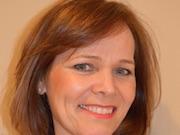Solving Britain’s maths challenge: reaching out to more young people

Last year a quarter of a million students passed GCSE maths, and then dropped the subject completely. With recent YouGov polling indicating that over 80% of business leaders are looking for employees with practical maths skills, the chasm between employers’ needs and employees’ abilities is growing wider by the day.
Businesses are rapidly growing aware of this skills gap, with 62% of them saying that young people are disadvantaged in the global jobs race due to their lack of maths skills. In our rapidly changing job market, the danger is that many companies will move their operations to countries where those skills are available. In short, increasing the number of post-16 students doing maths is a major challenge that has to be met across Britain.
To help improve the future prosperity and life chances of young people in the UK, we need to help them prepare for the challenges that lie ahead. That’s why we need to help more young people who achieve GCSE maths (grade C or above) to continue with maths. We need to help students appreciate the relevance of maths to everyday life, including current and future studies and work opportunities.
A Higher Education Academy (HEA) Mathematics Transitions report investigated the mathematical and statistical requirements of university degrees in Business and Management, Chemistry, Computing, Economics, Geography, Sociology and Psychology. They discovered over 80,000 students struggled to meet the mathematical demands of these courses. Also, around 178,100 of 16 to 18-year-olds failed to complete the post-16 qualifications they had embarked upon in 2012-13. These problems could be addressed if maths qualifications were made more relevant to young people’s future career prospects and their everyday lives.
From agriculture to transport and logistics it is easy to spot the growing employer demand for maths skills. In a recent visit to an agricultural college, a teacher explained to me that her students responded very well to mathematical questions that were rooted in real life situations they covered within their courses. One maths puzzle asked students how much milk yield they could expect from a herd of dairy cattle feeding off so many hectares. The students were able to work out in their heads exactly how many litres of milk on average the herd would return. This proved far more effective than the abstract algebra equation that would have yielded the same result.
It is clear that for today’s students, their employment prospects on leaving education are strongly influenced by their ability and confidence in using mathematics. This affects all individuals, from those requiring basic numeracy and financial awareness, to those using high level maths. We must recognise that for the majority of students, their requirements are different from those who study mathematics in preparation for studying degree-level mathematics.
A new DfE funded Core Maths Support Programme run by the CfBT Education Trust aims to tackle this precise challenge.
Professor Paul Glaister from Reading University states: “This is the most the significant development in 16-19 mathematics education in a generation”. The nature of Core Maths qualifications are intentionally different from a student’s typical experience at GCSE. The aim is to make the course accessible through students encountering problems that are set in a realistic context. Thus making mathematics more meaningful and addressing the criticism that mathematics is not relevant to everyday life.
Most importantly, Core Maths gives young people an incentive to want to stay with maths beyond GCSEs, in turn helping boost their confidence in applying maths skills to a wide range of settings within work, study and life. This is a simple solution to a complex challenge, but one which should be blindingly obvious to all!
Dr Deirdre Hughes OBE is chair of the Promoting Core Maths Senior Advisory Board for the Core Maths Support Programme. She is also Principal Research Fellow, Warwick University, Institute for Employment Research (IER)











Responses